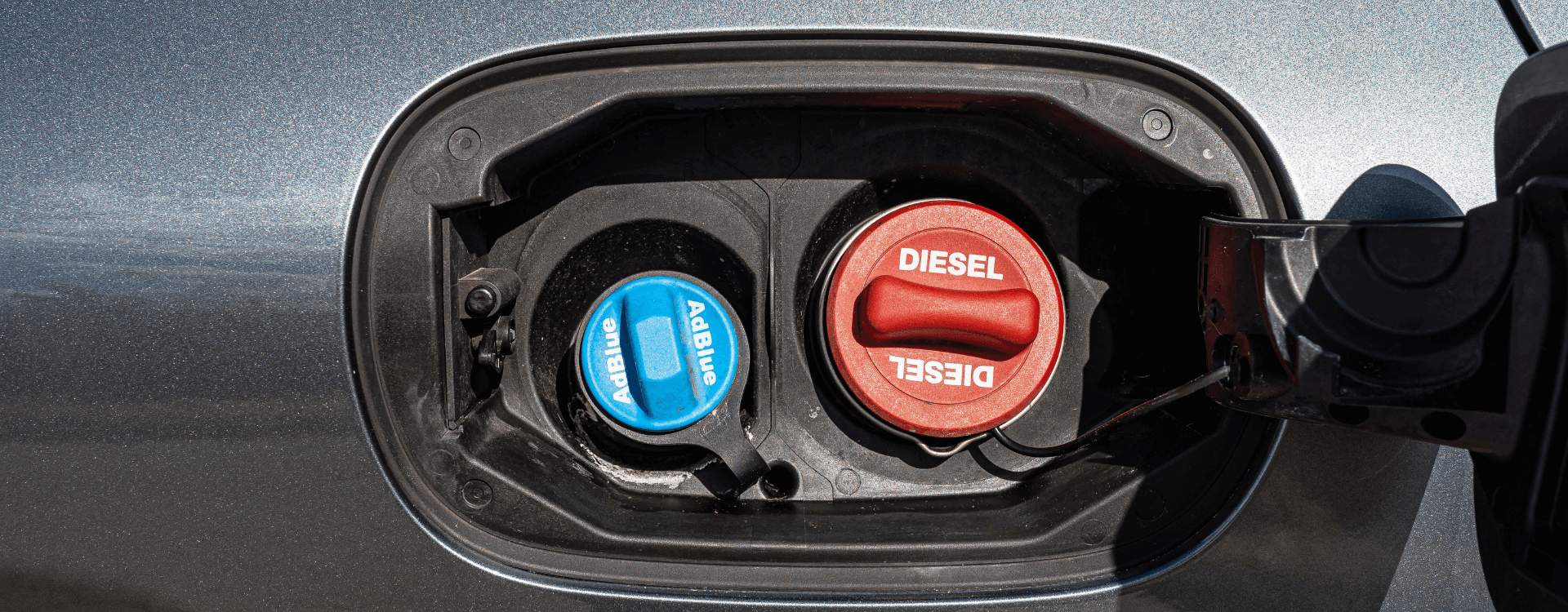
Does AdBlue prevent the DPF from clogging ?
European anti-pollution standards are becoming increasingly strict regarding CO2 emissions from vehicles. This affects private vehicles as well as diesel-powered trucks and public transport. To improve the energy balance of these vehicles, AdBlue has emerged as a must. But do you really know what AdBlue is ? What are the filling frequencies ? Does AdBlue preserve the diesel particulate filter ?
What is AdBlue ?
AdBlue is a liquid designed to destroy nitrogen oxide molecules to reduce the impact on the environment. When opening the fuel door of your Euro 6 (and higher) standard diesel vehicle, you will notice the access to the AdBlue tank. The composition of this liquid varies according to the type of vehicle and the load required. For example, AdBlue for trucks is not the same as AdBlue for diesel cars. AdBlue for cars is a mixture of urea (32.5%) and demineralized water (67.5%). This product can be purchased in garages as well as in car and shopping centers.
Filling up with AdBlue:
AdBlue is regularly injected into the diesel particulate filter to promote the combustion of pollutants as early as 190° C, by generating a chemical reaction. Fatally, this leads to a consumption of the liquid of about one and a half liters every 1,000 kilometers on average. When the AdBlue tank attains a critical level, it is necessary to top it up. Otherwise, a warning light will come on on the dashboard, and the vehicle will go into a degraded mode shortly afterwards. By repeatedly ignoring the warning, the vehicle will refuse to start. At a car center, a full AdBlue refill is typically charged around £25, although this may vary depending on the size of the tank. For instance, on a Peugeot 3008 diesel, the AdBlue tank capacity represent 17 liters.
Need help with your DPF?
Consult our experts to diagnose the condition of your diesel particulate filter
Test my catalytic converter Check my DPFAdBlue to maintain the DPF ?
AdBlue favours regeneration cycles, so it participates directly in the maintenance of the diesel particulate filter. However, so that the diesel car's emission control system to work properly, it is necessary to make long trips (a minimum of 30 minutes) by regularly pushing the gears. Without this, clogging is unavoidable. This is even more the case for diesel vehicles used mainly in cities. They rarely attain the temperatures required for DPF regeneration cycles. AdBlue, although it adds a constraint, it remains a crucial point to monitor regularly.
